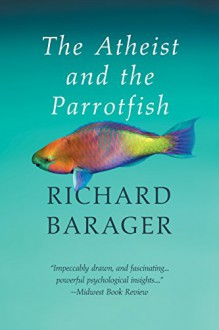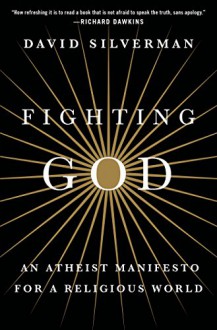

2012, als sich alle Welt wegen des Mayakalenders in die Hose machte, beschäftigte sich der Fantastik-Autor Markus Heitz mit den damit verbundenen Vorhersagen. Er fand heraus, dass dort keineswegs die Rede vom Weltuntergang war. Vielmehr versprachen die Prophezeiungen Veränderung. Er grübelte, was in unserer modernen Zeit als gravierende Veränderung durchgehen könnte. Eine Idee nahm Gestalt an: eine reelle Manifestation antiker Götter. Doch sein Zeitplan ließ es nicht zu, sie sofort umzusetzen. Erst 2015 hatte Heitz genug Luft, um sich diesem Gedankenspiel zu widmen. Dann sollte es schnell gehen. Er entschied, „AERA: Die Rückkehr der Götter“ in 10 E-Book-Episoden zu veröffentlichen und die Printausgabe hintenanzustellen. Da ich Printausgaben jedoch bevorzuge, wartete ich auf das Taschenbuch und las die irre Geschichte 2018 am Stück.
Die Welt erbebt im Angesicht göttlicher Präsenz. Sieben Jahre ist es her, seit die antiken Götter zurückkehrten und die Menschheit ins Chaos stürzten. Sie eroberten die Moderne im Sturm, lösten Kriege aus und demonstrierten ihre uneingeschränkte Macht. Im Jahr 2019 hat sich die Lage beruhigt. Eine neue Ordnung ist entstanden. Doch einige Zweifler gibt es noch immer. Malleus Borreau blieb Atheist. Er glaubt nicht, dass es sich bei den Entitäten, denen aufopferungsvoll gehuldigt wird, wahrhaft um Götter handelt. Sein Misstrauen stigmatisiert ihn als Außenseiter und ist das Geheimnis seines beruflichen Erfolgs. Als Ermittler bei Interpol untersucht er Verbrechen, die mit den Göttern in Zusammenhang stehen. Sein neuster Fall bringt jedoch sogar seine ehernen Überzeugungen ins Wanken. Auf der ganzen Welt verschwinden religiöse Artefakte. Leichen bezeugen die Skrupellosigkeit der Diebe und an den Tatorten taucht ein rätselhaftes Symbol auf. Ein Symbol, das Malleus schon einmal gesehen hat und das ihm noch immer Albträume beschert…
Betrachten wir die moderne Welt. Gesellschaft, Politik, Wirtschaft. Technischer Fortschritt. Ist die Menschheit auf das Unmögliche vorbereitet? Sind wir bereit, Glaube und Mythologie Gewissheit werden zu lassen? Laut Markus Heitz sind wir es nicht. Nach der Lektüre von „AERA: Die Rückkehr der Götter“ bin ich überzeugt, dass wir dankbar sein können, dass seine Vision fiktiv ist. Im sensiblen Gefüge unserer Gesellschaft ist einfach kein Platz für Omnipotenz. Die Götter vergangener Religionen sind den Menschen zu ähnlich: aggressiv, rachsüchtig, destruktiv. Sie brächten das Schlechteste in uns zum Vorschein. Der Glaube war schon immer eine beliebte Ausrede für entsetzliche Gräuel. Meiner Meinung nach würde sich diese Tendenz durch die physische Anwesenheit von Zeus und Konsorten potenzieren. Heitz teilt diese Ansicht offenbar, denn die Ermittlungen seines Protagonisten Malleus Borreau, die selten die Götter selbst, sondern meist Menschen betreffen, belegen, mit welch kalter Leidenschaft wir uns im Namen des Glaubens gegenseitig Schreckliches antun. Die episodische Konzeption von „AERA“ ist deutlich spürbar: die Leser_innen begleiten Malleus auf seinen Reisen von Fall zu Fall quer über den Erdball, die durch die übergreifende Handlungslinie der gestohlenen Artefakte lose verbunden sind. Auf diese Weise erlaubte mir Heitz, zahlreiche Facetten seiner beeindruckend realistisch ausgearbeiteten alternativen Realität zu erleben. Meinetwegen hätte er gern konkrete politische, soziale und ökonomische Implikationen illustrieren und stärker auf die positiven Aspekte göttlicher Präsenz eingehen können, ich möchte ihm die Schwerpunktentscheidung, sich auf die Abbildung von Vielfalt zu konzentrieren und dafür auf Detailreichtum zu verzichten, jedoch nicht ankreiden. Ich kann nachvollziehen, dass Malleus‘ Wahrnehmung im Fokus steht, weil er eine überaus interessante Position in der Geschichte einnimmt. Er verkörpert einen grundsätzlich blasphemischen Gedanken: die Annahme, dass nicht alles, was Götter tun, rechtmäßig oder automatisch legitim ist. Auch sie können Verbrechen begehen, die Schwierigkeit besteht nur darin, sie zur Rechenschaft zu ziehen. Heitz deutet somit an, dass wir in einer Welt leben, in der sich selbst das Göttliche dem Irdischen beugen muss – eine faszinierende Theorie. Das Problem daran war für mich, dass er eine Hauptfigur entwickeln musste, die dieser Theorie gerecht wird. Ich empfand Malleus als vollkommen überzeichnet. Alle Eigenschaften, die ihn als guten Ermittler charakterisieren, erschienen mir übertrieben. Er wirkte allen, sogar den Göttern und mir als Leserin, soweit überlegen, dass ich ihn unglaubwürdig fand und keine Chance hatte, seine Fälle selbstständig zu lösen. Malleus‘ arrogante, sexistisch gefärbte Superiorität stand daher zwischen uns, sodass ich nicht fähig war, Sympathie für ihn aufzubauen. Seine atheistische Einstellung konnte ich ebenfalls nicht nachempfinden. Würde Heitz‘ Gedankenspiel aus „AERA“ Wirklichkeit, ich würde voll drauf einsteigen. Ich würde mir einen Kult aussuchen und dessen glühendste Anhängerin werden.
„AERA: Die Rückkehr der Götter“ ist deutlich weniger fantastisch, als es auf den ersten Blick wirkt. Die Ausgangssituation erscheint skurril – doch die Konsequenzen, die Markus Heitz porträtiert, sind absolut vorstellbar. Die Lektüre war spannend, ich wünschte nur, ich hätte gemeinsam mit dem Protagonisten Malleus Borreau ermitteln dürfen, statt ihm lediglich dabei zuzusehen. Dennoch erlaubten mir seine Fälle, das Verhältnis von Menschlichkeit und Göttlichkeit aus einer sehr modernen Perspektive zu analysieren. Unsere Spezies kam dabei nicht gut weg. Man darf uns gar nicht erst in die Nähe von göttlicher Macht lassen, denn uns fällt garantiert eine Möglichkeit ein, diese für den eigenen Vorteil zu missbrauchen. Für mich ergab „AERA“ ein ernüchterndes Fazit: die Menschheit könnte mit dem Weltuntergang vermutlich besser umgehen als mit Göttern, die auf Erden wandeln.

 Log in with Facebook
Log in with Facebook 









